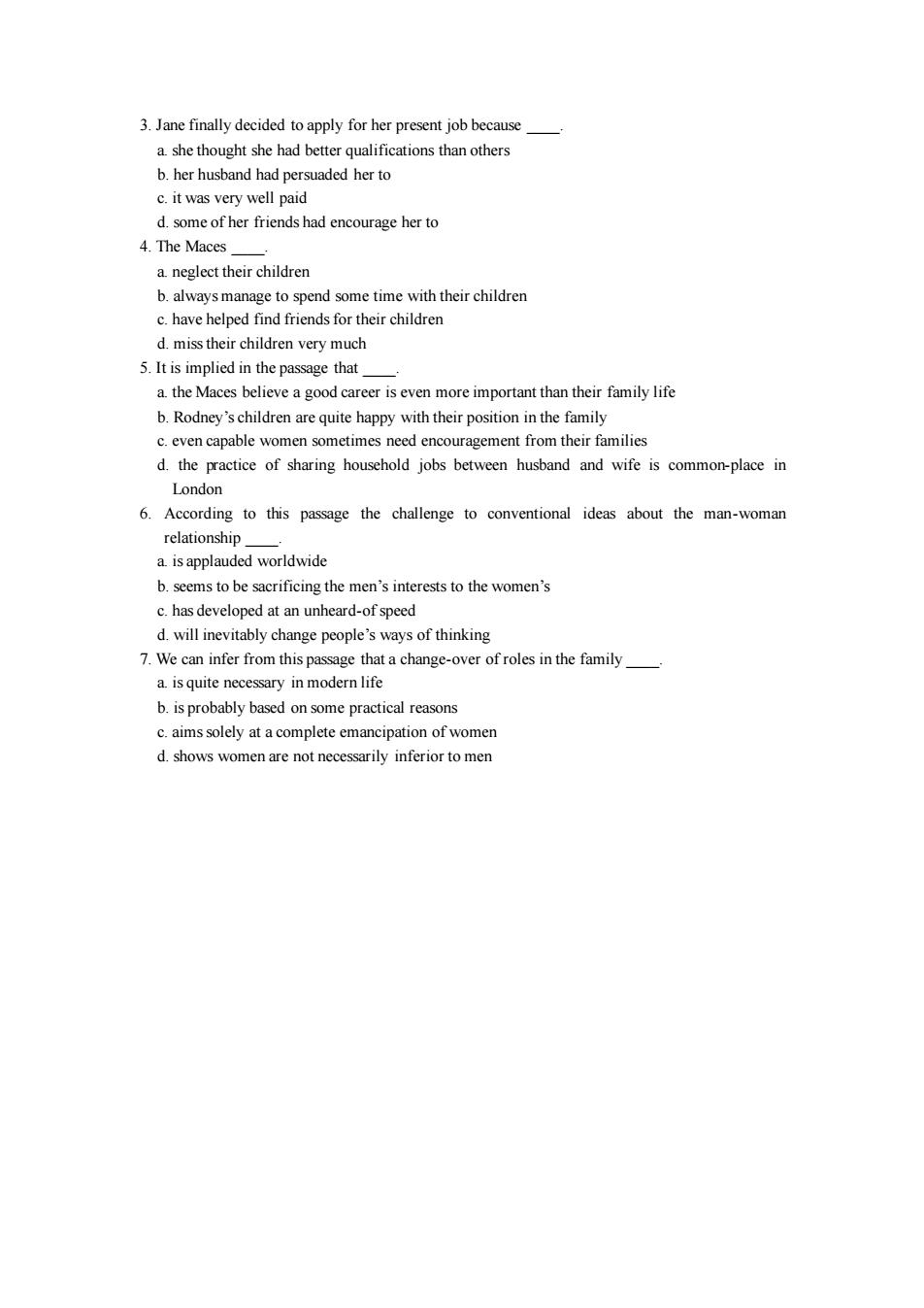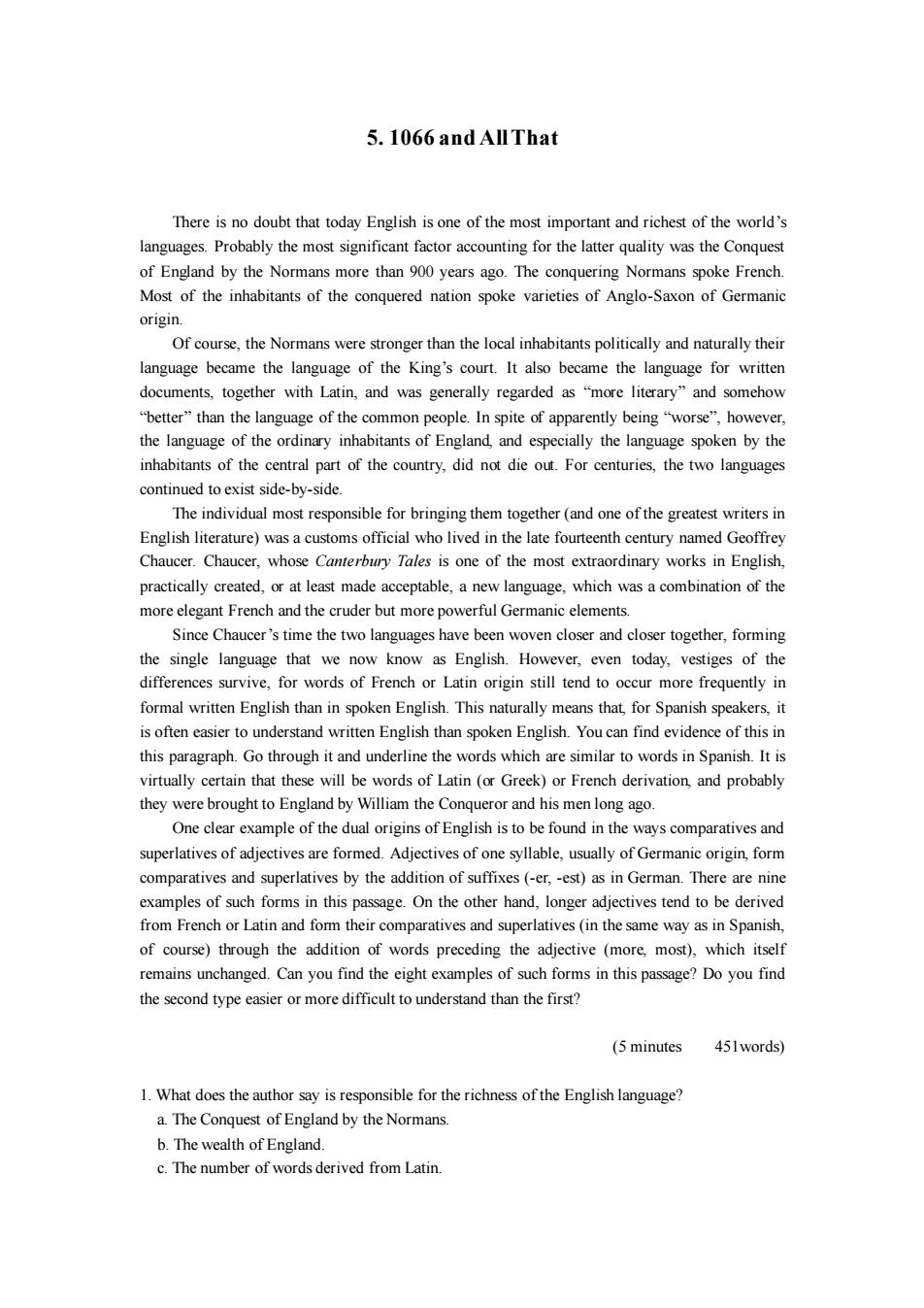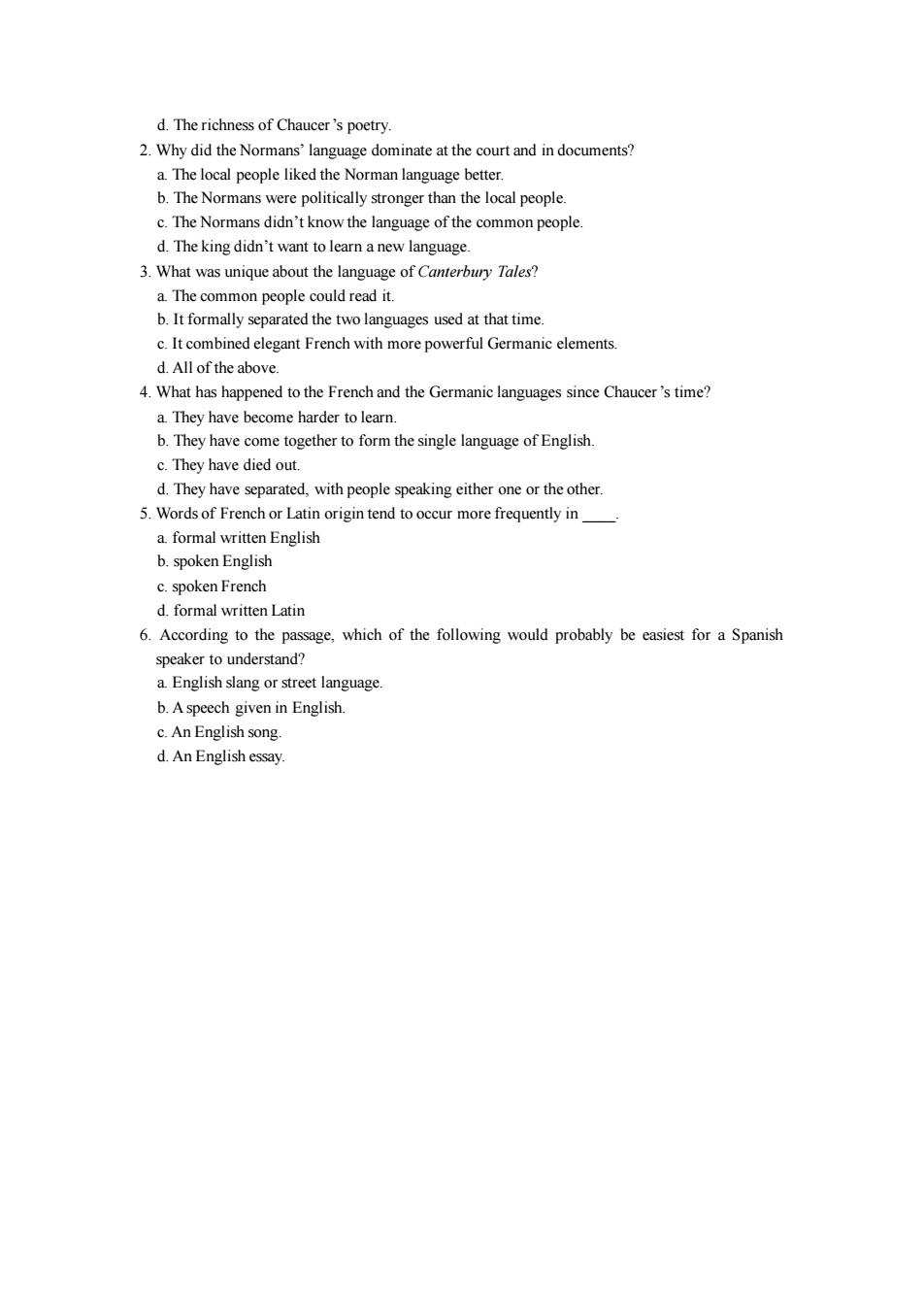
c.has been studving the links between food and cancer d.all of the above 3.Why did Dr.Shekelle think the correlation between vitamin A and lung cancer protection was logical? a vitamin a causes lung cancer b.Vitamin A cures lung cancer. c.VitaminA is neces ryfor the growth ofthe tissue liningthe lung ar d.VitaminA is a molecule that prevents smoke from being inhaled 4.Carotene is present in all of the following except a.tomatoes h carrots c.squash 5.Among the groups studied,who had the most cases of lung cancer? a.Those with the lowest level of carotene intake b.Those with the highest level of carotene intake. c.Those who ate only foods containing carotene d.Those with the lowest intake of .Why do arge a.The pills are hard to swallow. b.The pills contain a chemical that can be toxic in high doses c.The pills are expensive. d.The pills cause lung cancer
c. has been studying the links between food and cancer d. all of the above 3. Why did Dr. Shekelle think the correlation between vitamin A and lung cancer protection was logical? a. Vitamin A causes lung cancer. b. Vitamin A cures lung cancer. c. Vitamin A is necessary for the growth of the tissue lining the lungs. d. Vitamin A is a molecule that prevents smoke from being inhaled. 4. Carotene is present in all of the following except ____. a. tomatoes b. carrots c. squash d. butter 5. Among the groups studied, who had the most cases of lung cancer? a. Those with the lowest level of carotene intake. b. Those with the highest level of carotene intake. c. Those who ate only foods containing carotene. d. Those with the lowest intake of carrots. 6. Why do researchers warn against taking large numbers of vitamin A pills? a. The pills are hard to swallow. b. The pills contain a chemical that can be toxic in high doses. c. The pills are expensive. d. The pills cause lung cancer

4.Just the Job! Rodney Mace,35,is married with two young children,and is a part-time teacher of architectural history."Iam constantly surprised by other people's surprise.when they come to the gou the washing.Their eyes open wide at the sight of who comment too. His wife Jane,an Oxford graduate in modern languages,has a demanding full-time job.She is director of the Cambridge Home literacy scheme for adults in South London.Her working week involves several evenings and Saturdays.and at these times her husband is in sole charge of home and family. Apart m this.they share household jobs and employ a child-minder for the work:writing He has written several books and spends much of his time in the British Museum Reading Room,cycling there from his home in Brixton. People ask the Maces if they think that their children miss them.One can argue that satisfied parents generally have sisfied children but in any case the Maces are carefulto reerve time and energyto play with their children.And they have now developed ships ith othe adult and children.' Previously.Rodney Mace worked full-time and Jane only part-time.Then 18 months ago.the director of the literacy scheme left."It seemed to me that Jane was very well suited to do this job. She was very doubtful about it But I urged her to apply.She did.and she got Mace s that she needed th as s Did his male ego suffer from the change-over?Nothing like that occurred.But he still seem amazed at the way it changed his thinking "I felt that we were finally going to be partners.I fel enormous relief.I wasn't avoiding responsibility.but changing it Our relationship is so much better now.It has been a change for the good for both of us--I think for all of us,in every aspect of our lives i cannot ove emphasize that in every aspect.I think it is fundament that the works.The idea ofqua partnership if on partner doesn'work (4.5 minutes 406 words) 1.The article isabout a coupe whose married life is happier because a.they have a truly equal partnership b.the husband enjoys staying at home c thev earn more monev d.the wife has a full-time job 2.At one time,Rodney Mac a spent all his time writingbook b.taught architecture and history c.had a full-time job d.worked for the Cambridge House literacy scheme
4. Just the Job! Rodney Mace, 35, is married with two young children, and is a part-time teacher of architectural history, “I am constantly surprised by other people’s surprise, when they come to the house and see me cleaning a floor or hanging out the washing. Their eyes open wide at the sight of it! Much of the comment comes from men, but I am even more surprised at the number of women who comment too.” His wife Jane, an Oxford graduate in modern languages, has a demanding full-time job. She is director of the Cambridge Home literacy scheme for adults in South London. Her working week involves several evenings and Saturdays, and at these times her husband is in sole charge of home and family. Apart from this, they share household jobs and employ a child-minder for the afternoons. This enables him to teach two days a week and to do what he considers his principal work: writing. He has written several books and spends much of his time in the British Museum Reading Room, cycling there from his home in Brixton. People ask the Maces if they think that their children miss them. One can argue that satisfied parents generally have satisfied children, but in any case the Maces are careful to reserve time and energy to play with their children. “And they have now developed relationships with other adults and children.” Previously, Rodney Mace worked full-time and Jane only part-time. Then 18 months ago, the director of the literacy scheme left. “It seemed to me that Jane was very well suited to do this job. She was very doubtful about it. But I urged her to apply. She did, and she got it.” Jane Mace confirms that she needed this encouragement, as so many women initially do. Did his male ego suffer from the change-over? Nothing like that occurred. But he still seems amazed at the way it changed his thinking: “I felt that we were finally going to be partners. I felt enormous relief. I wasn’t avoiding responsibility, but changing it. Our relationship is so much better now. It has been a change for the good for both of us --- I think for all of us, in every aspect of our lives. I cannot overemphasize that: in every aspect. I think it is fundamental that the woman works. The idea of equal partnership is an illusion if one partner doesn’t work.” (4.5 minutes 406 words) 1. The article is about a couple whose married life is happier because ____. a. they have a truly equal partnership b. the husband enjoys staying at home c. they earn more money d. the wife has a full-time job 2. At one time, Rodney Mace ____. a. spent all his time writing books b. taught architecture and history c. had a full-time job d. worked for the Cambridge House literacy scheme

3.Jane finally decided to apply for her present job because b.her husband had persuaded her to c.it was very well paid d.some of her friends had encourage her to 4.The Maces a neglect their children c.have helped find friends for their children d.miss their children very much 5.It is implied in the passage that a the Maces believea good career important than their family life b.Rodney'schildren arequite happy with their position in the family c.even capable women sometimes need encouragement from their families d.the practice of sharing household jobs between husband and wife is common-place in London 6.According to this passage the challenge to conventional ideas about the man-woman aisapndaworidwidc b.scems to be sacrificing the men's interests to the women's c.has developed at an unheard-of speed d.will inevitably change people's ways of thinking 7.We can infer from this e that a change-over of roles in the family a is quite ne b.is probably based on some practical reasons c.aims solely at a complete emancipation of women d.shows women are not necessarily inferior to men
3. Jane finally decided to apply for her present job because ____. a. she thought she had better qualifications than others b. her husband had persuaded her to c. it was very well paid d. some of her friends had encourage her to 4. The Maces ____. a. neglect their children b. always manage to spend some time with their children c. have helped find friends for their children d. miss their children very much 5. It is implied in the passage that ____. a. the Maces believe a good career is even more important than their family life b. Rodney’s children are quite happy with their position in the family c. even capable women sometimes need encouragement from their families d. the practice of sharing household jobs between husband and wife is common-place in London 6. According to this passage the challenge to conventional ideas about the man-woman relationship ____. a. is applauded worldwide b. seems to be sacrificing the men’s interests to the women’s c. has developed at an unheard-of speed d. will inevitably change people’s ways of thinking 7. We can infer from this passage that a change-over of roles in the family ____. a. is quite necessary in modern life b. is probably based on some practical reasons c. aims solely at a complete emancipation of women d. shows women are not necessarily inferior to men

5.1066andAllThat There is no doubt that today English is one of the most important and richest of the world's languages Probably the most significant factor accounting for the latter quality was the Conquest of England by the Normans more than 900 years ago.The conquering Nor sspoke French Most of the inhabitants of the conquered nation spoke varieties of Anglo-Saxon of Germani origin Of course,the Normans were stronger than the local inhabitants politically and naturally their language became the language of the King's court.It also became the language for written documents,together with Latin,and was generally regarded as "more literary"and somehow better"than the language of th ecommon people.In spite of apparently being worse'”,howeve the language of the ordiny inhabitants of England an d especially the language spoken by the inhabitants of the central part of the country.did not die out.For centuries,the two languages continued to exist side-by-side. The individual most responsible for bringing them together (and one of the greatest writers in English literature)was a customs official who lived in the late fou eenth century Chaucer whose Tales is one of the most extra ordin ary works in Englis practically created,or at least made acceptable,a new language,which was a combination of the more elegant French and the cruder but more powerful Germanic elements Since Chaucer's time the two languages have been woven closer and closer together,forming the single language that we now know as English.However even today. vestiges of the words of French or Lati origin end to nore frequently formal written English than in spoken English.This naturally means that,for Spanish speakers,it is often easier to understand written English than spoken English.You can find evidence of this in this paragraph.Go through it and underline the words which are similar to words in Spanish.It is virtually certain that these will be words of latin (or Greek)or French derivation and probably ere brought to England by William the Conq and his men long superlatives of adjectives are formed.Adjectives of one syllable,usually of Germanic origin,form comparatives and superlatives by the addition of suffixes (-er,-est)as in German.There are nine examples of such forms in this passage.On the other hand.longer adiectives tend to be derived from French or Latin and fom their comparatives and superlatives(in the same way as in Spanish, of the additio of wor s preceding the adjective (more most) which itself remains unchanged.Can you find the eight examples of such forms in this passage?Do you find the second type easier or more difficult to understand than the first? (5 minutes 451words) 1.What does the author say is responsible for the richness ofthe English language? a.The Conquest of England by the Normans. b.The wealth of England. c.The number of words derived from Latin
5. 1066 and All That There is no doubt that today English is one of the most important and richest of the world’s languages. Probably the most significant factor accounting for the latter quality was the Conquest of England by the Normans more than 900 years ago. The conquering Normans spoke French. Most of the inhabitants of the conquered nation spoke varieties of Anglo-Saxon of Germanic origin. Of course, the Normans were stronger than the local inhabitants politically and naturally their language became the language of the King’s court. It also became the language for written documents, together with Latin, and was generally regarded as “more literary” and somehow “better” than the language of the common people. In spite of apparently being “worse”, however, the language of the ordinary inhabitants of England, and especially the language spoken by the inhabitants of the central part of the country, did not die out. For centuries, the two languages continued to exist side-by-side. The individual most responsible for bringing them together (and one of the greatest writers in English literature) was a customs official who lived in the late fourteenth century named Geoffrey Chaucer. Chaucer, whose Canterbury Tales is one of the most extraordinary works in English, practically created, or at least made acceptable, a new language, which was a combination of the more elegant French and the cruder but more powerful Germanic elements. Since Chaucer’s time the two languages have been woven closer and closer together, forming the single language that we now know as English. However, even today, vestiges of the differences survive, for words of French or Latin origin still tend to occur more frequently in formal written English than in spoken English. This naturally means that, for Spanish speakers, it is often easier to understand written English than spoken English. You can find evidence of this in this paragraph. Go through it and underline the words which are similar to words in Spanish. It is virtually certain that these will be words of Latin (or Greek) or French derivation, and probably they were brought to England by William the Conqueror and his men long ago. One clear example of the dual origins of English is to be found in the ways comparatives and superlatives of adjectives are formed. Adjectives of one syllable, usually of Germanic origin, form comparatives and superlatives by the addition of suffixes (-er, -est) as in German. There are nine examples of such forms in this passage. On the other hand, longer adjectives tend to be derived from French or Latin and form their comparatives and superlatives (in the same way as in Spanish, of course) through the addition of words preceding the adjective (more, most), which itself remains unchanged. Can you find the eight examples of such forms in this passage? Do you find the second type easier or more difficult to understand than the first? (5 minutes 451words) 1. What does the author say is responsible for the richness of the English language? a. The Conquest of England by the Normans. b. The wealth of England. c. The number of words derived from Latin

d.The richness of Chaucer's poetry 2.Why did the dominate at the in documen a.The local people liked the Norman language better. b.The Normans were politically stronger than the local people c.The Normans didn't know the language of the common people d.The king didn't want to learn a new language. 3.What was unique about the language of Canterbuy Tales? a The common people could read it b.It formally separated the two languages used at that time c.It combined elegant French with more powerful Germanic elements. d All of the above 4.What has happened to the French and the Germanic languages since Chaucer's time? a They have become harder b.They have come together to form the single language of English c.They have died out d.They have separated,with people speaking either one or the other. 5.Words of Frenchor Latin origin tend tooccur more frequently in a formal written English b.spoken English c.spoken French d formal written Latin 6.According to the passage,which of the following would probably be easiest for a Spanish speaker to understand? b.Aspeech given in English. c.An English song. d.An English essav
d. The richness of Chaucer’s poetry. 2. Why did the Normans’ language dominate at the court and in documents? a. The local people liked the Norman language better. b. The Normans were politically stronger than the local people. c. The Normans didn’t know the language of the common people. d. The king didn’t want to learn a new language. 3. What was unique about the language of Canterbury Tales? a. The common people could read it. b. It formally separated the two languages used at that time. c. It combined elegant French with more powerful Germanic elements. d. All of the above. 4. What has happened to the French and the Germanic languages since Chaucer’s time? a. They have become harder to learn. b. They have come together to form the single language of English. c. They have died out. d. They have separated, with people speaking either one or the other. 5. Words of French or Latin origin tend to occur more frequently in ____. a. formal written English b. spoken English c. spoken French d. formal written Latin 6. According to the passage, which of the following would probably be easiest for a Spanish speaker to understand? a. English slang or street language. b. A speech given in English. c. An English song. d. An English essay